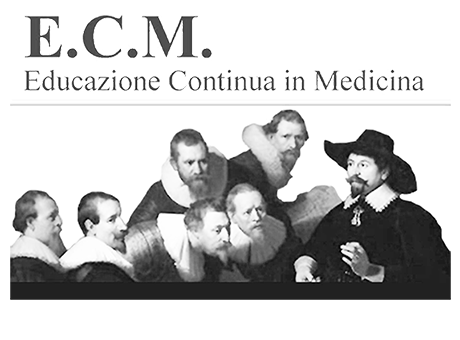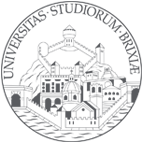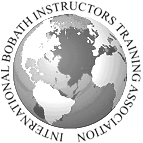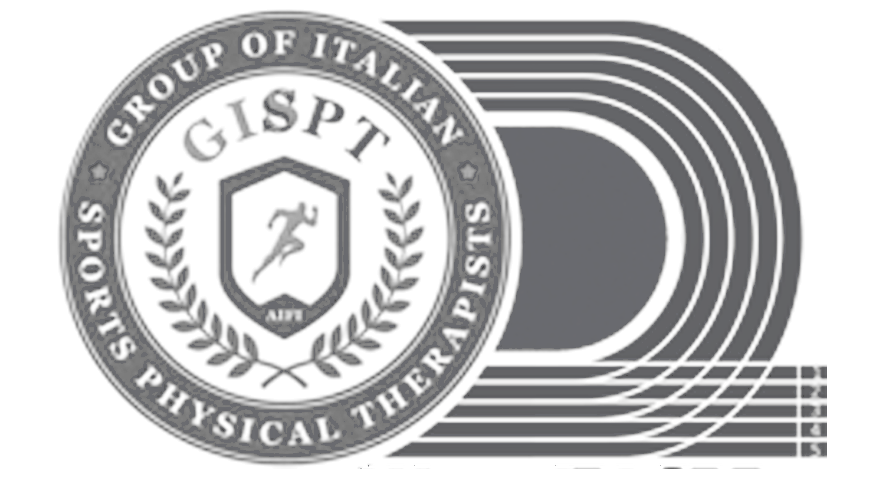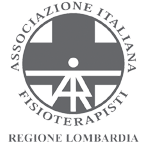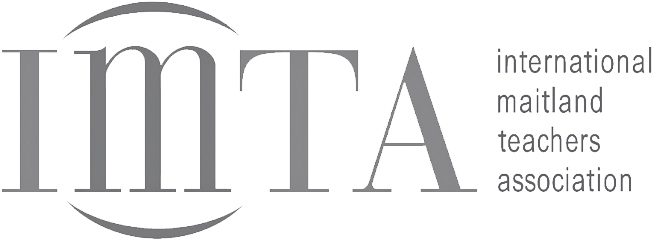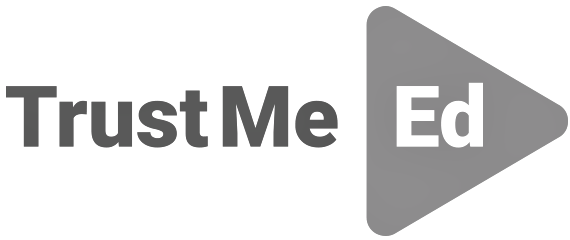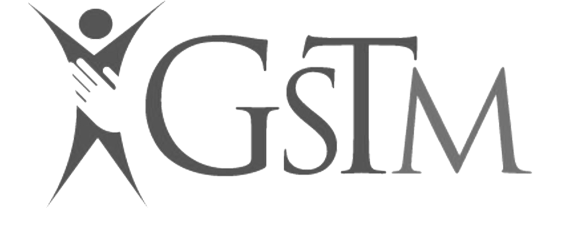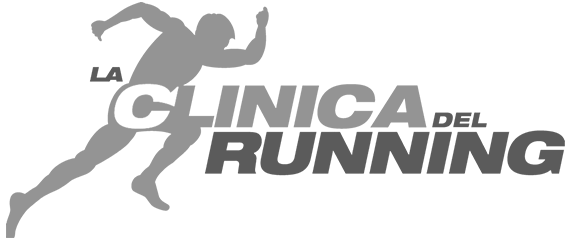May 15, 2023
EM246: CRAFTA® The Foundation - Basic Course (Hybrid)
-
B.Sc., PT, B.S.C., ET, OMT, CRAFTA® Teacher
What is CRAFTA®
Physio and manualtherapists and manual therapists but also speech therapists and dentists have shown an increasing clinical and practical interest over the past few years in the temporomandibular craniomandibular and the craniofacial regions..
The professions also show a positive development towards enhanced interdisciplinary cooperation. On this background, CRAFTA® (Cranial Facial Therapy Academy) was founded by Harry von Piekartz and other initiators of various disciplines.
Target Groups
The courses were developed to meet the interests of physiotherapists and manual therapists but also of other disciplines who are included in the treatment of this patient group. These professions are mainly general practitioners, dentists, orthodontists and speech therapists.
The aims of CRAFTA®
- Structuring of the international education and continuing professional education of the treatment and management of patients with temoporomandibular, craniofacial dysfunctions and pain, as much as possible based on the best available evidence;
- Offering international courses, in which representatives of different health professions (e.g. doctors, dentists, orthodontists, orthopedic specialists, speech therapists) have the opportunity to contribute their knowledge;
- Quality management and assurance in education and application of craniofacial therapy;
- Promote interdisciplinary work and cooperation with e.g. dentists, orthopedic specialist, ENT specialists, neurosurgeons, and other specialists, who work with this specific patient group
- Defining a quality standard mainly for physical therapists, manual therapists and other interested health professions;
- To stimulate research projects in the field of TMJ-/Head- and cervical pain and supervision of these projects;
- Supervision of current and future research projects with the focus on physical and manual therapy organized and supported by CRAFTA®;
- Public relations and communication with other professional associations. The currently most important goal is the continuing education of physical and manual therapists with the following contents:
- Specialized assessment of patients with head-/neck and face pain
- Independent analyses of the assessments and the interpretation of these results on the basis of known clinical reasoning strategies
- Developing long-term treatment and management plans, which are evidence-based
- Specialized communication skills, which are relevant in therapy sessions as well as in the communication with other disciplines, in order to find consensus in discussions
In collaboration with:
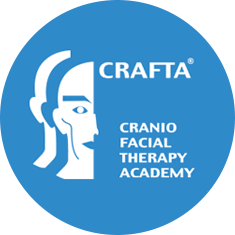
Intended for
Payments
- Deposit €790.00 within 7 days from the registration
- 2nd deposit €700.00 by date May 5, 2023
- Balance €600.00 by date November 3, 2023
Calendar
Online:
1. May, 15 (2023)
2. May, 22 (2023)
3. June, 12 (2023)
In Presence: 20-23 June 2023
Part II:
Online:
1. September, 25 (2023)
2. October, 02 (2023)
3. October, 09 (2023)
In Presence: 09-12 November 2023
language
EARLY BOOKING up 15 April 2023: € 1890,00
The cost of the course includes access to educational material in digital format (e-learning) worth € 225.00
SCHEDULE
Programma 1° incontro in presenza
|
1° Giorno |
Ora |
Lezione |
Minuti |
Argomento |
|
|
09.00 – 10.30 |
P |
90 |
Palpazione dei principali punti di repere della regione craniomandibolare e dintorni |
|
|
10.30 – 11.30 |
P |
60 |
Relazioni tra regione cranio- mandibolare ed altre strutture della regione craniale Ragionamento clinico correlato a Segni e sintomi della regione craniomandibolare |
|
|
11.30 – 11.45 |
|
|
Pausa Caffè |
|
|
11.45 – 13.00 |
P |
75 |
Meccanismi patobiologici; spiegazione del modello base per i pattern clinici della regione craniomandibolare |
|
|
13.00 – 14.00 |
|
|
Pausa Pranzo |
|
|
14.00 – 16.00 |
P |
120 |
Esame soggettivo e pianificazione dell'esame fisico |
|
|
16.00 – 17.15 |
P |
75 |
Analisi funzionale della regione craniomandibolare |
|
|
17.15 – 17.30 |
|
|
Pausa Caffè |
|
|
17.30 – 18.30 |
P |
60 |
Diagnosi differenziale delle disfunzioni craniomandibolari Esame fisico |
|
2° Giorno |
Ora |
Lezione |
Minuti |
Argomento |
|
|
08.30 – 10.00 |
P |
90 |
Trattamento delle disfunzioni craniomandibolari |
|
|
10.00 – 11.00 |
P |
60 |
Riabilitazione neuromuscolare |
|
|
11.00 – 11.15 |
|
|
Pausa Caffè |
|
|
11.15 – 12.15 |
P |
60 |
Trattamento di patologie specifiche |
|
|
12.15 – 13.15 |
P |
60 |
Disfunzioni articolari craniomandibolari |
|
|
13.15 – 14.15 |
|
|
Pausa Pranzo |
|
|
14.15 – 15.30 |
P |
75 |
Disfunzioni muscolari craniomandibolari |
|
|
15.30 – 16.30 |
P |
60 |
Discussione sulle parafunzioni e sulla sindrome oto-mandibolare |
|
|
16.30 – 16.45 |
|
|
Pausa Caffè |
|
|
16.45 – 18.30 |
P |
105 |
Paziente demo: esercitazione Pratica su paziente demo |
|
3° Giorno |
Ora |
Lezione |
Minuti |
Argomento |
|
|
08.30 – 10.00 |
P |
90 |
Disfunzioni muscolari craniomandibolari |
|
|
10.00 – 11.00 |
P |
60 |
Attività integrate nella vita quotidiana, modifiche dello stile di vita |
|
|
11.00 – 11.15 |
|
|
Pausa Caffè |
|
|
11.15 – 13.15 |
P |
120 |
Follow up caso clinico |
|
|
13.15 – 14.15 |
|
|
Pausa Pranzo |
|
|
14.15 – 16.15 |
P |
120 |
Esercizi di ragionamento clinico |
|
|
16.15 – 16.30 |
|
|
Pausa Caffè |
|
|
16.30 – 18.30 |
P |
105 |
Revisione e conclusione Valutazione, trattamento e management della regione craniofacciale |
|
4° Giorno |
Ora |
Lezione |
Minuti |
Argomento |
|
|
08.30 – 09.30 |
P |
60 |
Definizioni generali |
|
|
09.30 – 11.30 |
P |
120 |
Dinamica Craniale; quali strutture influenziamo |
|
|
11.30 – 11.45 |
|
|
Pausa Caffè |
|
|
11.45 – 13.00 |
P |
75 |
Palpazione del neurocranio |
|
|
14.00 – 15.00 |
P |
120 |
Natura del movimento passivo craniale |
Programma 2° incontro in presenza
|
1° Giorno |
Ora |
Lezione |
Minuti |
Argomento |
|
|
09.00 – 10.00 |
P |
60 |
Introduzione ai movimenti craniali passivi. Tecniche Generali |
|
|
10.00 – 11.00 |
P |
60 |
Neurocranio: Tecniche Specifiche della regione Occipitale |
|
|
11.00 – 11.15 |
|
|
Pausa Caffè |
|
|
11.15 – 13.00 |
P |
105 |
Modelli dei movimenti craniali ed obiettivi del trattamento |
|
|
13.00 – 14.00 |
|
|
Pausa Pranzo |
|
|
14.00 – 16.00 |
P |
120 |
Regione occipitale Ragionamento clinico, ipotesi ed esame soggettivo |
|
|
16.00 – 16.15 |
|
|
Pausa Caffè |
|
|
16.15 – 18.30 |
P |
135 |
Esame e trattamento con tematiche neurocraniali specifiche
- Regione dell’osso temporale - Regione dell’ossopetroso - Regione del parietale Regione dell’osso frontale |
|
2° Giorno |
Ora |
Lezione |
Minuti |
Argomento |
|
|
08.30 – 10.00 |
P |
90 |
Esame e trattamento con tematiche neurocraniali specifiche |
|
|
10.00 – 11.00 |
P |
60 |
Palpazione dello scheletro facciale |
|
|
11.00 – 11.15 |
|
|
Pausa Caffè |
|
|
11.15 – 13.00 |
P |
105 |
Pratica clinica e ripasso manovre |
|
|
13.00 – 14.00 |
|
|
Pausa Pranzo |
|
|
14.00 – 16.00 |
P |
120 |
Tecniche Generali su viscerocranio:
- Zigomatico - Mascella |
|
|
16.00 – 16.15 |
|
|
Pausa Caffè |
|
|
16.15 – 18.30 |
P |
135 |
Tecniche Generali su viscerocranio: Osso zigomatico Osso nasale Osso mascellare Osso palatino (palato) |
|
3° Giorno |
Ora |
Lezione |
Minuti |
Argomento |
|
|
08.30 – 10.00 |
P |
90 |
Il sistema nervoso craniale: esame, trattamento e management. |
|
|
10.00 – 11.00 |
P |
60 |
Classificazione Clinica delle Neuropatie Craniali (CCCN) |
|
|
11.00 – 11.15 |
|
|
Pausa Caffè |
|
|
11.15 – 13.00 |
P |
105 |
Neuroanatomia del tessuto nervoso centrale |
|
|
13.00 – 14.00 |
|
|
Pausa Pranzo |
|
|
14.00 – 16.00 |
P |
120 |
Esame della meccanosensitività del sistema nervoso Cranioneurodinamica |
|
|
16.00 – 16.15 |
|
|
Pausa Caffè |
|
|
|
|
|
Esame dei nervi cranici: |
|
|
16.15 – 17.15 |
P |
60 |
- Nervo Trigemino (V) - Nervo Facciale (VII) |
|
|
17.15 – 18.30 |
P |
75 |
Esame dei nervi cranici:
- Nervo Ipoglosso (XII) |
|
4° Giorno |
Ora |
Lezione |
Minuti |
Argomento |
|
|
08.30 – 10.00 |
P |
90 |
Esame dei nervi cranici: - Nervo Olfattivo (I) - Nervo Ottico (II) |
|
|
10.00 – 11.00 |
P |
60 |
Paziente Demo: Esame e management di un paziente con dolore craniofacciale cronico |
|
|
11.00 – 11.15 |
|
|
Pausa Caffè |
|
|
11.15 – 12.15 |
P |
60 |
Trattamento del tessuto nervoso con la palpazione |
|
|
12.15 – 13.30 |
P |
75 |
Esame dei nervi cranici: - Nervo Oculomotorio (III) - Nervo Trocleare (IV) - Nervo Abducente (VI) |
|
|
13.30 – 15.00 |
P |
90 |
Esame dei nervi cranici: - Nervo Glossofaringeo (IX) - Nervo Vago (X) - Direttive di gestione |
|
|
15.00 – 15.30 |
|
|
Esame Pratico e Compilazione schede di valutazione della qualità percepita |
